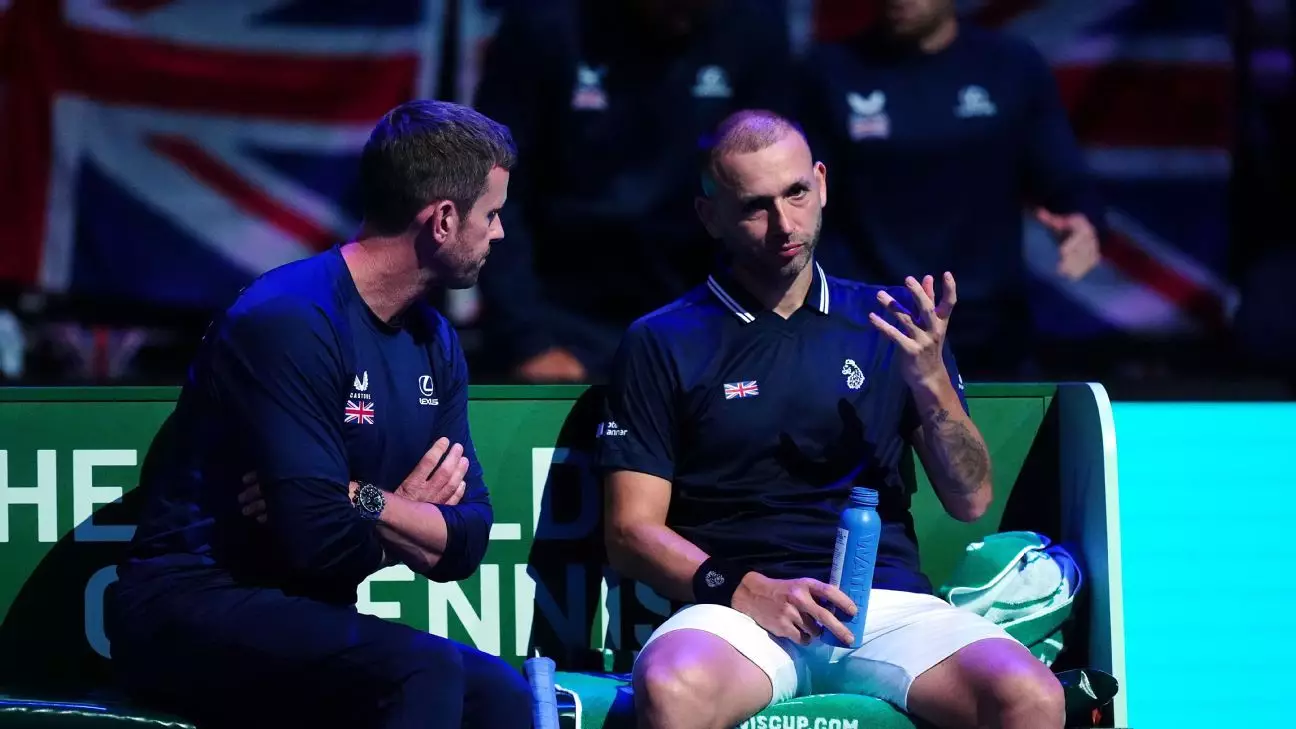In a disappointing turn of events, Great Britain’s journey in the Davis Cup has come to a premature end, fueled by a string of lackluster performances. The British team, under significant pressure, faced an uphill battle in their final group-stage match against the Canadian squad. With hopes riding high for a triumphant progression to the knockout stage slated for November, the eventual outcome was a stark reminder of the harsh realities of competitive tennis. Dan Evans, the first Brit to take the court, fell victim to Denis Shapovalov’s relentless play, succumbing to a straight-set defeat that set the tone for the day.
Shapovalov’s Dominance
The match began poorly for Evans, who found himself on the receiving end of a 6-0 scoreline in the first set—a devastating blow that left him visibly shaken. Shapovalov, ranked as the world No. 100, exhibited an impressive blend of power and precision, displaying the kind of form that left little room for missteps. In the second set, Evans attempted to rally, showcasing resilience as he pushed Shapovalov into a tighter contest, forcing the Canadian to fend off multiple break points. Yet, the glimmer of hope for the Brit was short-lived. A critical error during the final game, an under-hit backhand that landed precariously into the net, sealed the fate of not only Evans but the entire British team.
Following Evans, Jack Draper faced off against another Canadian powerhouse, Felix Auger-Aliassime. Their previous encounter at the Cincinnati Open was marred by controversy, which only heightened the stakes of this match. However, this time, it was the Canadian who emerged victorious after a fiercely contested battle, winning 7-6 (10-8), 7-5. Draper demonstrated flashes of brilliance and a competitive spirit, yet in the end, the experience and skill of Auger-Aliassime proved too formidable. As the match unfolded, it became clear that the pressure of the situation weighed heavily on Draper, impacting his performance when it mattered most.
In an attempt to salvage pride, Evans teamed up with Neal Skupski for the day’s concluding doubles match against Shapovalov and Auger-Aliassime. With their tournament hopes hanging by a thread, the duo sought to deliver one final, heroic performance. However, the synergy and confidence experienced by the Canadian pair overshadowed Britain’s efforts. Canada succeeded in solidifying their spot in the knockout rounds, joining Argentina from the same group, while Great Britain’s solitary victory against Finland felt woefully insufficient.
Reflections on the Campaign
This year’s Davis Cup outing has highlighted the challenges and gaps within British tennis at the high-stakes level. As fans and analysts reflect on the campaign, it is clear that while individual talents exist, the cohesive effort required for advancement was lacking. The performance showcased the need for strategic reflection and a recommitment to building a stronger, more resilient team for future competitions. Great Britain’s Davis Cup exit marks a significant setback, yet it also offers a poignant opportunity for growth and development as they prepare for the challenges that lie ahead.

